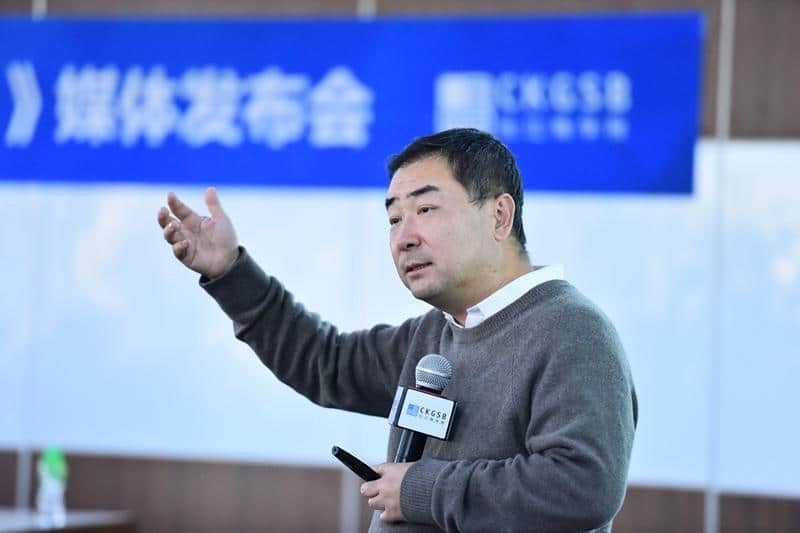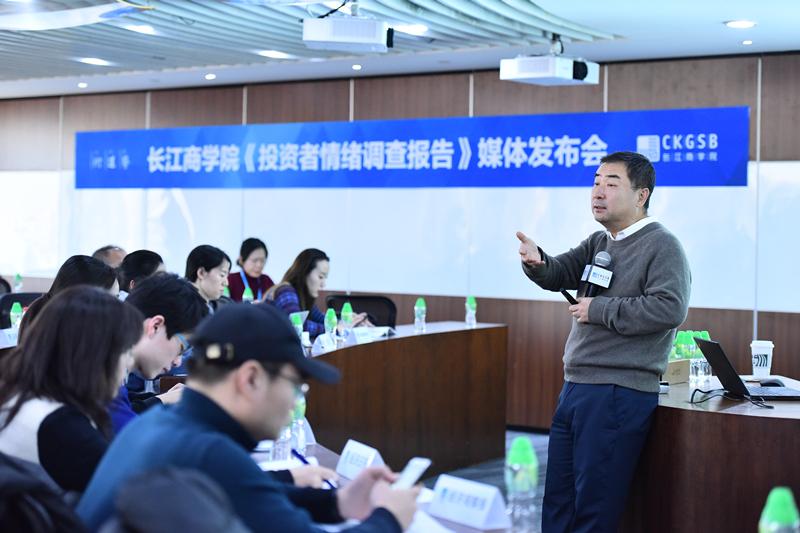The 2019 Q4 findings of the Cheung Kong Investor Sentiment Survey (CKISS), released by Dr Liu Jing, Professor of Accounting and Finance and Associate Dean of Cheung Kong Graduate School of Business (CKGSB), show that while Chinese investors expect a low rate of return from stocks and housing investments, they are still willing to invest more in the first, as they consider stocks to be undervalued and China’s economic growth and exchange rate to remain stable. Meanwhile, until November 2019, the fundamentals of listed companies—especially of private companies—are worsening, according to survey results.

Professor Liu Jing at the press conference
Professor Liu’s research is based on a tight connection between theory and practice. The quarterly CKGSB Investor Sentiment Survey produced by the CKGSB Investment Research Center collects 2,500 respondent’s sentiment on China’s equity market, of which 1,900 are regular retail investors and 600 are financial industry investors.

The press conference of the 2019 Q4 report of the Cheung Kong Investor Sentiment Survey (CKISS)
By the third quarter of 2019, 23% of the survey’s respondents had increased their stockholding, up by 3% compared with the last quarter, while 10% less than the last quarter planned to invest more in housing, pointing to the effectiveness of the government’s curbing regulations for housing. Respondents continued to expect China’s GDP to grow annually by about 5% and for A-share listed companies to increase their net profits by 9.7% in the next 5 years. A drop of 2.1% and 7.4%, compared with the average in the previous 4 surveys among respondents, believed Sino-US trade frictions would have a negative impact on the Chinese economy in the short- and long-term, respectively, and 4.5% more (32.5%) deemed the impact to actually be positive in the long-run.
The survey shows that China’s private companies are experiencing more challenges. By the third quarter, the fundamentals of private enterprises had worsened. Besides a deteriorating trade environment worldwide, private companies have been hit hard by the shortage of liquidity due to the government’s financial deleveraging since 2018, since much of their funding comes from off-balance sheet financing that has shrunk. A further analysis points to China’s high leveraging results from soaring debts caused by rising land costs, due to uneven urbanization and land supply. Professor Liu believes that reducing liquidity when the supply and demand of land are imbalanced, rather than a glut of money issuance, resulted in lack of liquidity that made private companies vulnerable to it.